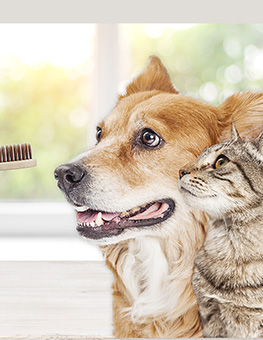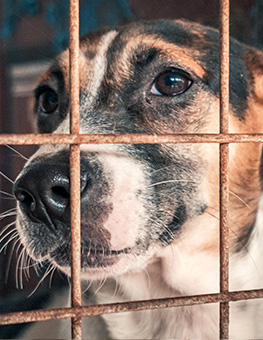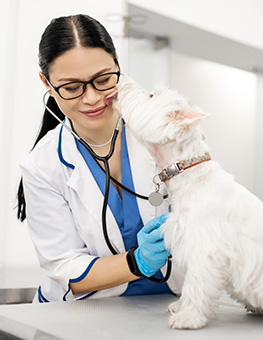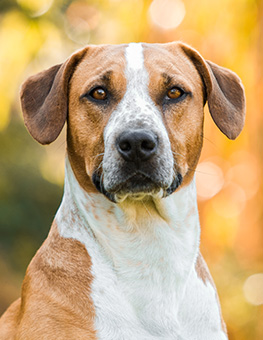Bad Dog Breath: Causes, Cures, and Prevention
Bad dog breath is a condition pet owners know well, especially those who've dealt with it before.
Scientifically known as halitosis, bad breath is often dismissed as something all dogs get, a symptom of their wild and woolly lives. This is unwise, as bad breath often emanates from much more serious problems. If your pet is suffering from (or if you are suffering from) bad dog breath you should consult a veterinarian.
Causes
Bad breath can result from a variety of causes. It's important to figure out what the cause of your dog's bad breath is, so that you can address this problem. Here are a few examples of conditions that could lead to halitosis:
- Dental Problems: This is the most common cause of bad breath in dogs, especially in small dogs. When plaque builds from saliva, food, and bacteria, it causes the mouth to smell. Good dog dental care is essential in preventing this. If you don't take care of your dog's teeth problems, the situation could get much worse. A buildup of plaque leads to gingivitis, and if that is left alone, it could develop into periodontal disease. In addition to worsening your dog's breath, this causes permanent damage and can potentially abscesses or tooth loss.
- Diabetes: Bad breath in dogs is sometimes caused by diabetes. If this is the case, the breath will have a sweet or fruity smell. It will also often be accompanied by more frequent drinking and urination than usual. If you suspect this is the case for your dog, you should take him to a veterinarian immediately to get a diagnosis.
- Kidney Problems: Bad breath is also often an indicator of kidney problems. When this is the case, your dog's breath may smell like urine. Kidney problems are very serious, and you should bring your dog to a veterinarian if you believe this may be the cause.
- Liver Problems: If your dog's breath is abnormally bad smelling, and accompanied by vomiting, and yellowish eyes or teeth, this is a strong indicator of liver disease. Like diabetes and kidney problems, this should be treated very seriously, and a trip to the veterinarian is an absolute must.
- Other causes: Other potential causes of bad breath include gastrointestinal issues, cancer, sinus infections, or a range of other diseases. In any case, bad dog breath is a warning sign and warrants a look from a veterinarian.
Treatments
Since bad breath can signal a host of underlying problems, there is no one treatment for it. As a lack of proper dog dental care is the most common cause, often your veterinarian will simply recommend a professional teeth cleaning. Another common treatment is a modification in diet. If your veterinarian, however, determines a more serious cause of halitosis, it will require a more serious treatment and medication.
Prevention
The key to keeping your dog's breath smelling fresh (or at least as fresh as any dog's breath smells) is to keep your dog healthy in all other aspects of his life, as breath is a good barometer for dog health. Good dog dental care, a balanced diet, and a watchful eye will go a long way towards keeping your dog's mouth fresh and his health in check.

















